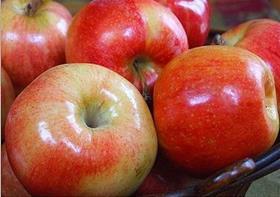
Many in the industry say it’s been a long time coming, but sadly the trade appears to have been unable to avoid a storm of controversy over the treatment of certain fruits with wax coatings containing morpholine. Despite knowing of the potential for fruit treated with the substance to be blocked on the basis of food safety concerns, there has nevertheless been a certain amount of surprise at a decision taken in October by the UK Food Standards Agency (FSA) to recommend such products be removed from the supermarket shelves.
The FSA has come in for a lot of criticism, with the agency accused of acting in an “utterly disproportionate” manner after it ruled that apples treated with fruit wax containing morpholine should be banned. The decision does indeed have major implications for the topfruit sector – it will affect an unspecified volume of Chilean apple imports to the UK. The FSA’s critics point to the fact that morpholine-based fruit glazes are permitted in several other major markets, including the US, South Africa and Chile.
However, the coatings are not allowed in Europe. In its ruling, released on Friday, 8 October, the FSA said that “no application has been made to approve this additive in the EU, therefore it should not be present on food on sale in member states”. Although the agency accepted that any exposure to morpholine at levels detected on the apples was “likely to be of low risk to consumers”, it said that food business operators had been advised all affected fruit should be removed from sale.
The FSA added that imports of citrus fruits that also contained the chemical in their external waxes would remain on sale as the affected part of the product was removed before consumption. The group’s director of food safety Dr Alison Gleadle said the ruling was expected to affect apples only. “Waxes containing morpholine aren’t allowed under EU rules and shouldn’t be on food products. However, eating any of the fruit is unlikely to be a health concern,” she said. “We asked industry to remove the apples from the food chain because they are usually eaten unpeeled, but we won’t be asking food businesses to take any citrus fruits off shelves or asking consumers not to consume them, because they are generally peeled before eating.”
However, sources told Fruitnet.com in late October that there had already been incidents of certain key products – including avocados from Kenya – being rejected by major retailers on the basis that morpholine had apparently been applied to the fruit’s skin.
The agency’s decision has definitely made an impact on the fresh produce import landscape, echoing the recent fall-out from the EU’s decision to declare Indian grape production treated with Chlormequat in breach of its maximum residue level standards. It has also provoked an angry response from the UK’s Fresh Produce Consortium (FPC), which said it was “deeply concerned” that the FSA was “raising undue concerns” over the safety of all fruit and vegetables through its ruling.
The organisation’s chairman, Nigel Jenney, claimed in a statement that the government agency had failed to manage the incident in a responsible and proportionate manner. “The fresh produce industry takes every care to provide safe, fresh produce of the highest quality and the FSA recognises that the likelihood of any risk from residues of morpholine to consumers is extremely low,” he commented. “We are most concerned that the decision could create an unnecessarily confusing picture for consumers about the safety of all fresh produce.”
Describing the FSA’s response to the incident as “utterly disproportionate”, particularly in the light of the FSA’s comments regarding the potential impact on consumer health, Mr Jenney claimed that the decision would not just be confined to the UK, but would have “major repercussions” across the EU and globally. He added: “The FPC believes that the FSA has failed to manage this incident in a responsible and proportionate manner and is challenging the FSA’s handling of this incident at a senior level both in the UK and the EU.”



